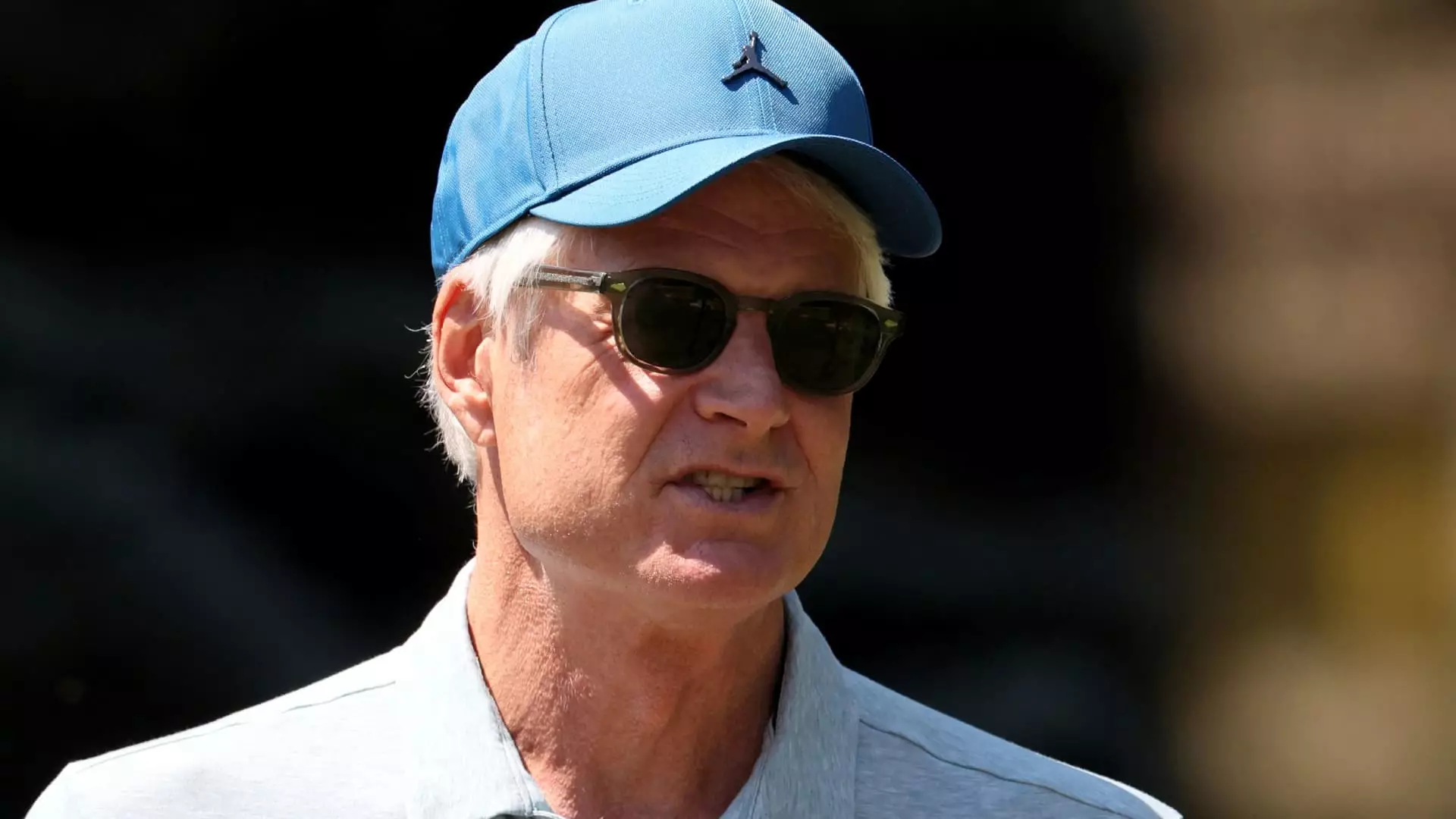In a significant shift reflective of deeper challenges within the iconic footwear brand, Nike announced the departure of CEO John Donahoe, effective October 13, 2023. Elliott Hill, a company veteran returning from retirement, is set to replace him the following day. This leadership change, which has immediately bolstered investor confidence—evidenced by an 8% surge in shares during after-hours trading—signals a strategic pivot for Nike as it seeks to navigate turbulent waters brought on by market shifts and evolving consumer demands.
John Donahoe took the reins as Nike’s CEO in January 2020, a timeframe that coincided with a global pandemic that reshaped many industries, including retail. During his tenure, annual sales for Nike remarkably rose from $39.1 billion to $51.4 billion due to the surge in e-commerce. However, as the post-pandemic era unfolded, Nike faced significant challenges, characterized largely by a 25% decline in shares throughout the year and bleak sales forecasts.
In stark contrast to Donahoe’s background in digital commerce and consulting, Hill brings an insider’s perspective shaped by over three decades at Nike, ascending from an intern to the president of the consumer and marketplace division. This combination of deep-rooted institutional knowledge and familiarity with Nike’s identity positions Hill as a leader poised to enhance both employee morale and consumer connection, which have notably suffered under Donahoe’s tenure.
Despite initial success in direct-to-consumer strategies, critics argue that Nike lost its innovative edge during this transformation. The company’s focus on its branded stores and e-commerce efforts inadvertently allowed new competitors to carve out significant market space. Notable brands like On Running and Hoka capitalized on Nike’s wholesale retrenchment, further complicating the landscape for the sneaker giant.
Elliott Hill’s return comes at a crucial juncture as Nike strives to reconnect with its innovation-driven heritage. Analysts suggest that Hill’s extensive experience at Nike, where he spearheaded marketing operations, ideally positions him to reinvigorate product development and better align Nike’s offerings with consumer expectations. Hill’s assertion that it is time to “deliver bold, innovative products” speaks to a crucial need for the brand to reclaim its leadership position in a crowded marketplace.
Beyond financial strategies, the cultural impact of this leadership change cannot be overlooked. Jessica Ramirez, a senior analyst, highlights a morale slump within the company and the pressing need for Hill to rebuild this aspect of Nike. His familiarity with the workforce, coupled with a passion for sport and community within the brand, is expected to foster a rejuvenated sense of purpose among employees.
Hill’s commitment to reconnecting with long-standing employees and nurturing new partnerships suggests a strategic focus on collaborative workplace culture. By harnessing his experience, Hill aims to improve morale, which in turn could foster more innovative approaches within teams, ultimately benefiting Nike’s product trajectories.
As Nike embarks on this transitional phase, the spotlight falls on the broader restructuring strategies that have been implemented. Plans to reduce costs by approximately $2 billion over the next three years, alongside the potential shedding of over 1,500 jobs, indicate a serious commitment to realigning operational efficiencies. Hill’s leadership will be pivotal in guiding these initiatives while ensuring the brand remains engaging and relevant in a dynamically shifting market.
Moreover, the critical support for Hill from co-founder Phil Knight exemplifies a sense of continuity and trust in the company’s vision. Knight’s confidence in Hill’s leadership indicates a shared commitment to revitalize Nike’s brand ethos that historically resonated with consumers and drove the company to market leadership.
Nike stands at a crossroads, with Elliott Hill’s return signifying a potential reawakening of the transformative spirit that once defined it. Through a combination of strategic reorientation, cultural revitalization, and a renewed commitment to innovation, Nike seeks to reclaim its status as a frontrunner in the global athletic footwear industry. As the company moves forward, all eyes will be on Hill and his ability to navigate the complexities of consumer interests while restoring Nike’s legacy of pioneering excellence.

